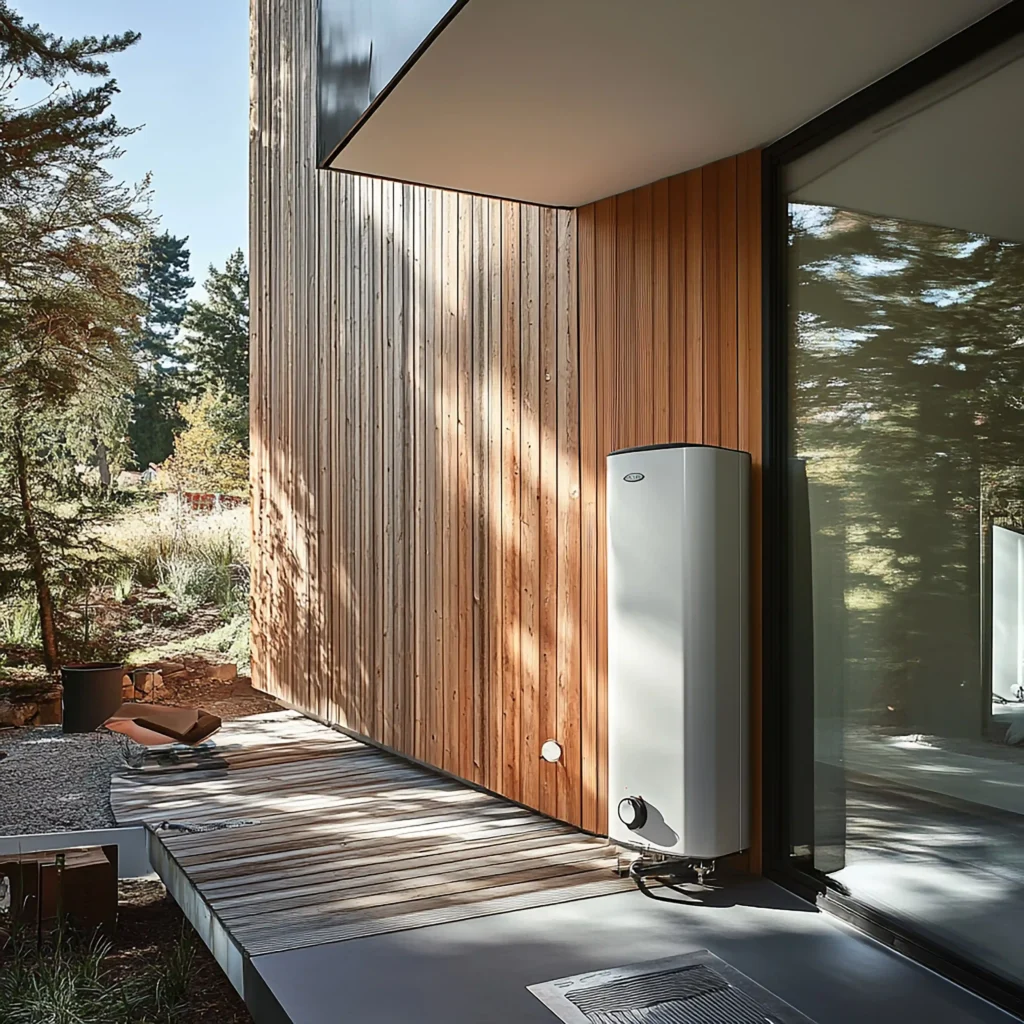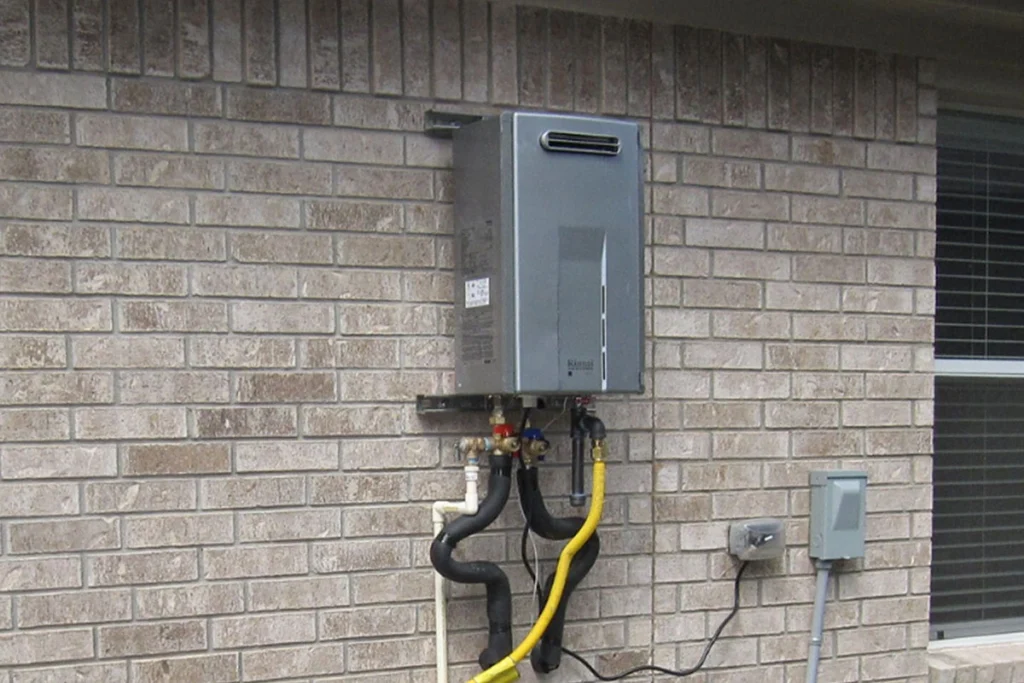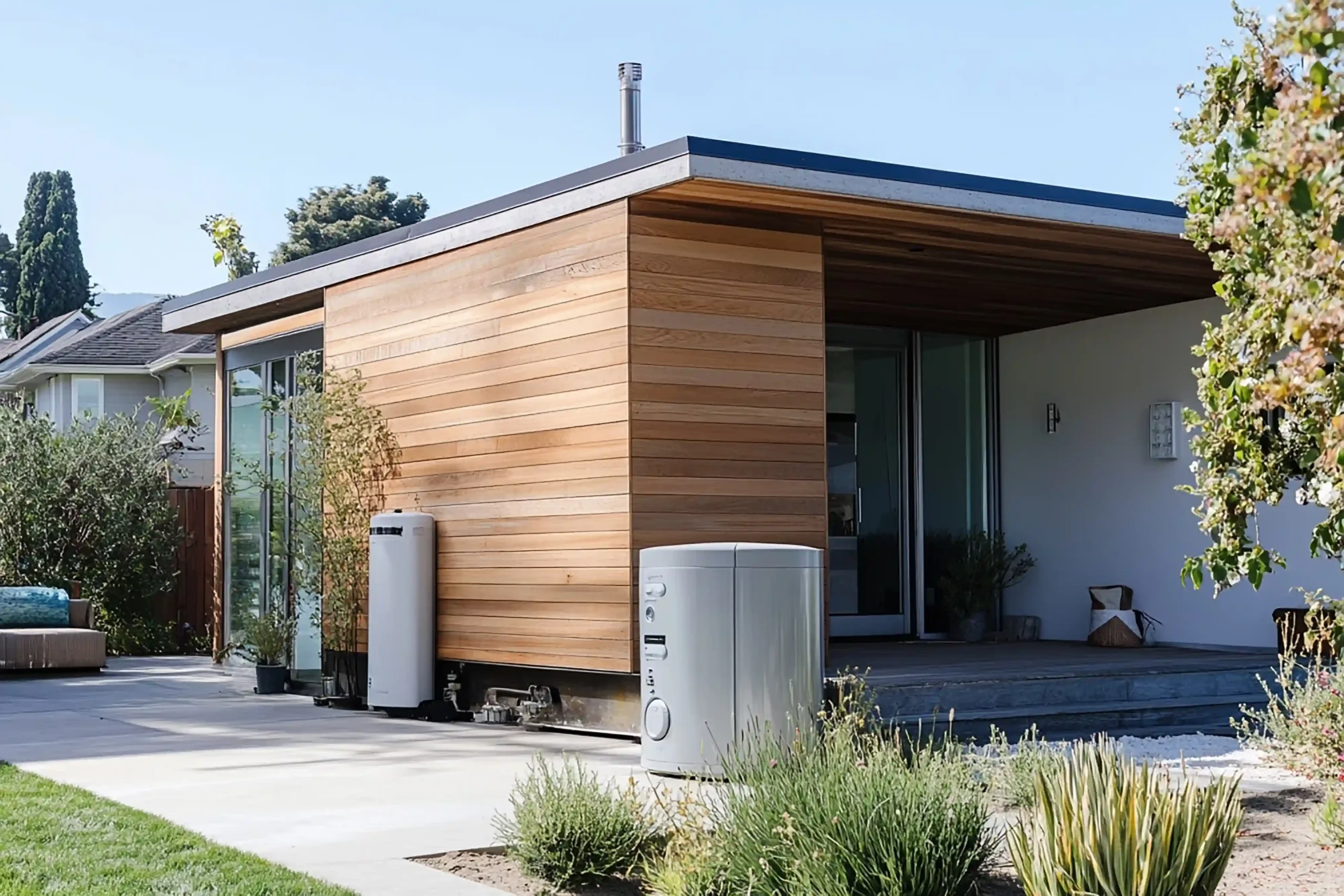Let’s be honest—no one likes a lukewarm shower in the middle of an Orange winter. With temperatures dipping low and mornings that feel straight out of a freezer, having a dependable hot water system isn’t just a luxury—it’s survival. Whether you’re building a new home, upgrading an old unit, or just tired of waiting ages for the water to heat up, understanding Hot Water Systems in Orange is essential.
In this guide, I’ll walk you through the real-world costs, expected lifespan, and some no-nonsense tips for getting your system installed the right way—without the stress or plumbing jargon. From choosing the right type to knowing when it’s time to replace your old one, we’ve got everything you need to keep things running hot and hassle-free.
Why Hot Water Systems in Orange Are Essential for Year-Round Comfort
Orange winters aren’t exactly forgiving—average July temps rarely top 12°C, and those frosty 4°C mornings? Brutal. So when you shuffle to the shower at 6 AM, lukewarm just won’t cut it. That’s where hot water systems in Orange earn their keep. They’re not just a nice-to-have—they’re a must.
Beyond comfort, there’s the budget. Heating water guzzles around 23–25% of the average Aussie home’s energy. That tiny electric tank humming 24/7? It’s silently hiking up your power bill. In contrast, energy-efficient hot water systems—like heat pumps or solar units—can take the sting out of your energy spend.
As one energy expert puts it: “More than a quarter of your home’s energy goes to hot water. A smarter system pays for itself.” And in a climate like Orange’s, getting the right setup doesn’t just save money—it saves your mornings from becoming ice-bucket challenges.

Types of Hot Water Systems: Which One Suits Orange Homes Best?
When it comes to hot water systems in Orange, you’ve got options. The main ones are Electric, Gas, Solar (thermal), and Heat Pump. Each has pros and cons, and the “best” choice depends on your home, usage, and budget. Here’s a quick comparison:
| System Type | Pros | Cons |
|---|---|---|
| Electric (Storage) | * Cheap to install;* No fumes, safe indoors;* Can use off-peak rates for savings. | * High running costs (expensive electricity);* Heats slower;* Water can run out if tank is small. |
| Electric (Instant) | * Nearly unlimited hot water (no tank needed);* Quick hot on demand. | * Only heats one tap at a time (unless 3-phase power);* Needs lots of power (wires);* Can spike bills if used a lot. |
| Gas (Instant) | * Fast hot water, unlimited supply;* Cheaper fuel cost per unit than electric;* No standby heat loss (no tank); * Works during power outages*. | * Uses fossil fuel (environmental impact);* Requires ventilation; *Not everyone has natural gas hook-up (LPG bottles cost more). |
| Solar-Thermal | * Very low running cost after install;* Long-lasting (15–25 years);* Great for sunny days;* Reduces carbon footprint. | * Very expensive upfront ($4K–$6K); Needs roof space and sunlight; Requires electric/gas booster on cloudy days; *Complex roof install. |
| Electric Heat Pump | * Extremely efficient (3–4× more than resistive);* Lower power bills (up to ~60–70% savings);* Often qualifies for rebates;* Good even on cool days (can work down to ~–5°C). | * High purchase price ($200–$6,000);* Slower heating (takes longer to heat big tank);* Usually needs outdoor space and ventilation; *Less heat on very cold days (boost element helps). |
Choosing the right hot water system in Orange often comes down to balancing upfront cost vs. operating cost. For example, electric storage heaters are cheapest to buy (roughly $500–$3,500) but cost the most to run. Gas instant systems (about $700–$3,000) heat up quickly at moderate running cost. Solar and heat pump setups ($2,000–$6,000+) are priciest, but save a bundle long-term. In Orange’s climate, solar can be very effective (lots of clear days), and heat pumps perform well even on chilly mornings (they pull heat from outside air).
Pro tip: If you already have (or plan to get) rooftop solar PV, an electric heat pump is brilliant: you can heat water with your own solar power! Many locals pair solar panels with a heat pump and watch their bills drop.
Cost Breakdown: What You’ll Really Pay in Orange
Okay, let’s talk dollars. What will it cost you to buy and run these systems in Orange?
- Installation Cost (purchase & install): Expect to pay roughly the ranges above. For instance, CHOICE notes electric tank systems are ~$500–$3,500, and gas units ~$700–$3,000. Solar systems are ~$4,000–$6,000 upfront, and heat pumps ~$200–$6,000 (price varies if you have an existing tank vs. needing a new one). Brand, capacity (tank size or flow rate), and installation complexity all affect the quote.
- Running Costs (annual): Electric storage can run you on the order of $600+ a year on electricity (at regular rates). A typical gas system might be $300–$400/year in gas. Solar thermal heaters can be very low ($100–$200/yr) if boosted by electric only occasionally. Heat pumps, when well-run (off-peak or with solar PV), might only be $200–$300/year. The exact number depends on your usage and rates, but the rule is: electricity is dear, gas is cheaper, and solar/heat pump yield the cheapest bills.
- Government Incentives: Orange homeowners can take advantage of rebates. For example, NSW offers discounts up to $400–$670 when you replace an electric or gas heater with an eligible heat pump. Additionally, solar and heat pump systems earn Small-scale Technology Certificates (STCs), which help reduce your upfront costs. In practice, this can knock a few hundred dollars off your sticker price. You can check current rebates and eligibility criteria via the NSW Government Energy Saver Program or the Clean Energy Regulator (CER) website for STC values
Don’t be fooled by low purchase price alone. A cheap electric model might look like a bargain, but over 10+ years your electricity bills could make up the difference. Conversely, a pricier solar/heat-pump may quickly pay back those extra dollars in energy savings and incentives. Always calculate both upfront and running costs.
| System Type | Typical Purchase Cost (installed) | Typical Annual Running Cost |
|---|---|---|
| Electric (storage) | ~$500–$3,500 | ~$600–$800 (peak rates) |
| Electric (instant) | ~$600–$2,000 | ~$600–$800 (depending on usage) |
| Gas (storage) | ~$1,000–$7,000 | ~$300–$600 |
| Gas (instant) | ~$700–$3,000 | ~$300–$600 (depends on usage & LPG cost) |
| Solar-Thermal | ~$4,000–$6,000 | ~$100–$300 (very low, mostly booster) |
| Heat Pump | ~$200–$6,000 | ~$200–$300 (off-peak or with solar PV) |
(Approximate figures from CHOICE and industry sources.)
Insider tip: If you’re on a time-of-use electricity plan, installing a timer for off-peak heating can slash costs. Also, get multiple quotes! Plumbing companies often have different markups, so a few bids can save big. Remember: cheap up-front doesn’t always equal cheap long-term.
Lifespan Expectations: How Long Will Your System Last?
Here’s the kicker: no hot water system is forever. Think of it like your car – keep up with maintenance, and it’ll run for years. Ignore it, and it’ll sputter to a stop early.
Typical lifespans by type are roughly:
- Electric/Gas Storage (tank) systems: About 10–15 years. One source notes an electric tank usually goes 10–15 years (gas is slightly less, around 8–12). Tanks corrode over time, so expect replacement around a decade.
- Tankless/Instant systems: Often 15–20+ years. Without a tank to corrode, many instant heaters last longer (some 20+ years).
- Solar (thermal) heaters: 15–25 years. Solar collectors and tanks are built tough. Well-maintained solar can hit 20+ years.
- Electric Heat Pumps: About 10–15 years. Heat pumps have lots of moving parts (compressor, fans) but are built to last over a decade.
In practice, you’ll typically get around 10–15 years from a storage unit if it’s cared for. Hard water or heavy use can shorten that. Regular maintenance (flushing the tank, replacing anode rods, fixing leaks) can push you toward the upper end of the range. As one expert warns: “Whether you keep up with regular servicing… will determine how long you get from your system”.
Here’s what can age a system prematurely: mineral build-up from hard water (Orange’s water can be a bit “mineral-y”), neglecting to drain sediment each year, or running your heater at crazy-high temperature. You can’t control the weather, but you can inspect your system annually, lower the thermostat to ~60°C for normal use, and call a pro to swap the sacrificial anode rod every 5 years or so. These steps keep your unit happy.

Installation Tips: Avoid These Rookie Mistakes
Installing a hot water system isn’t a weekend DIY if you want it done right. Here are the big lessons we’ve learned (some the hard way):
- Size Matters: Don’t buy too small. A 3-person family needs around a 125–160L tank (electric) or a 135–170L gas tank. Ask your plumber to calculate your peak demand. If you undersize it, you’ll be taking chilly baths or running the gas heater flat-out. On the flip side, huge oversizing wastes energy by keeping unused water hot. Aim for “just right.”
- Mind the Placement: Do you have space? Gas units typically go outside or in a ventilated area (for fumes), whereas some electric tanks can fit indoors or in a garage. Make sure the chosen spot meets building codes (e.g. height above floor for gas, drainage pan under indoor tanks, clearance to combustibles). If you have solar tubes, ensure the roof can handle their weight and angle toward the sun.
- Hire a Licensed Plumber: In NSW, only a licensed plumber or gasfitter may install or modify a hot water system. It’s the law. Going DIY isn’t worth the risk – you could void warranties, trigger safety hazards, or even face fines (unlicensed work can incur penalties up to tens of thousands!). A professional will not only do it legally, but also ensure the work passes inspection and your guarantee stays valid.
- Check for Compliance: NSW standards require things like an anode rod (and flushing) for tanks, proper flues for gas heaters, and correct wattage/metering for electric models. Make sure your plumber follows all state regulations. If in doubt, glance at the NSW Fair Trading plumbing pages or simply ask your installer for certification.
- Think Long-Term: Plan access. Hot water systems often tuck behind cupboards or under stairwells. Leave enough room around the unit for later servicing. Label isolation valves clearly, and keep the job site tidy (picture a bundle of pipe insulation or labeled wires for the next tech).
- Ask for the Manual: Finally, get the user manual! Yep, seriously. The installer or supplier should leave you with documentation on how to operate and maintain your specific model. Know where the temperature dial is and how to shut it off in an emergency. This small step saves confusion later.
In short, avoid cutting corners. It’s not glamorous, but spending a bit more on a pro install (often just a few hundred dollars) saves headaches, warranty trips, and code compliance issues.
Ongoing Maintenance & Efficiency Tips
Even after installation, your hot water system needs love to run its best. Regular maintenance keeps it efficient, safe, and long-lived:
- Annual Flush-Out: If you have a storage tank, drain a few liters from the drain valve every 6–12 months. This clears sediment that builds up on the bottom and makes your heater work harder. (Tip: turn off power/gas and cold inlet first, then open a hot tap too. Let it cool before touching anything.)
- Test the Pressure Relief Valve: That little lever on top of the tank is your safety valve. Gently lift it once a year – it should gurgle and dump hot water (into a safe drain or bucket). If it doesn’t, it’s seized and dangerous. Replace it pronto.
- Inspect Anode Rods: Most steel tanks have a sacrificial anode that attracts rust. Every 3–5 years, have a plumber check it. A depleted anode means your tank will rust. Replacing it can add years to the system life.
- Fix Leaks Immediately: Even a tiny drip can cause big heat losses (and water damage). Check visible pipes, the valve under the tank, and around the base. If you spot a slow drip, call a plumber before it becomes a flood.
- Insulate: Keep that heat in. Wrap older electric tanks in a blanket insulator (available at hardware stores) and insulate hot-water pipes, especially through unheated spaces. Bonus: insulate your ceiling around the header of a solar unit.
- Lower Thermostat: Many units ship at 65°C or higher. Unless you need scalding hot water, dial it back to 60°C (room-temperature house, that still gives safe hot showers). Every degree less cuts stand-by heat loss.
- Use Off-Peak Timers: If you have economy off-peak power, use the built-in timer on your electric heater. Heat water at night when rates are ~half of peak. (Just remember to set it to come on before your morning shower time.)
- Professional Servicing: At least once every few years, get a licensed plumber to do a check-up. They’ll catch things like corroded fittings, worn thermostats, or gunky burners. One expert notes that staying on top of servicing “will determine how long you get from your system”. Think of it like a yearly health check for your heater.
By following these simple steps, you’ll keep showers hot, prevent breakdowns, and maximize lifespan. Neglect all that and you’re just begging for premature failure.
Signs It’s Time to Replace Your System
No system lasts forever. So how do you know when your trusty heater is throwing in the towel? Watch for these red flags (Claire in Orange learned these the hard way):
- Weak or cold showers: If hot water runs out faster than it used to, or you turn the taps all the way on with little effect, the heating element or burner is likely failing. Don’t just crank the knob higher – that’s only a short fix.
- Weird noises: Old tanks often “rumble” or “boil” as sediment accumulates and water flashes to steam. Popping or banging sounds from the tank indicate trouble. It’s literally water boiling under pressure – time to let it go.
- Rusty/Discolored water: Brown or rusty water isn’t your new morning brew. It means the tank is corroding. Sludge at the bottom of the tank, discolored water out of the tap – these are “surer signs” that the tank’s life is up. (A failing anode rod causes this.)
- Leaking tank: Notice a puddle or constant drip from the bottom of the tank? That leak will only grow. We’ve seen a minor drip turn into a full geyser. Once a tank leaks at the base, it’s toast – plan for replacement.
- Age itself: If your system is approaching 10 years (or older, if it’s a storage tank), start planning. Even if it’s limping along, leaving it too long risks an overnight crash when you least expect it.
- Safety concerns: A cracked temperature-pressure (T&P) relief valve, damaged wiring, or rust near fittings are all safety issues. Don’t ignore them – those can cause floods or scalding.
Meet Claire from Orange. Her 12-year-old electric tank started rumbling and then spewed rusty water one morning. The plumber said repairing it would cost half of a new one. In the end, replacing was cheaper than gambling on repairs.
Repair vs Replace: As a rule of thumb, if your repair estimate is more than 50–70% of a new system’s cost, consider replacement. The newer system will be more efficient and under warranty. And remember, modern units often come with 10-year warranties on tanks – something your old one can’t offer.
Trusted Brands Popular in Orange
When locals pick a hot water system, some brand names keep popping up. Rheem and Rinnai are favorites – Rheem for its sturdy tanks and good solar tech, Rinnai for its reliable gas instantaneous units. Dux (now A. O. Smith) is a classic Aussie brand known for durable tank heaters and heat pumps. Bosch also has a strong presence, especially for heat pump technology.
These brands regularly show up on “best hot water systems for Australian homes” lists, thanks to proven performance and local support networks. For example, many Orange plumbers carry Rheem and Rinnai as their primary lines. Ultimately, compatibility and service matter more than logo: choose a brand with a great local warranty and easy access to parts.
Customer tip: When shopping, don’t just ask for “Rheem vs Rinnai” – ask about the specific model’s energy rating (star rating), capacity, and warranty. A 4-star gas instant Rinnai or a 5-star electric heat pump Rheem with a good warranty can be a better choice than a lower-rated version of the other brand. Read a few user reviews or ask neighbors: people with similar homes and climates often share experiences (“My Rheem lasted 15 years on a bore water, no issues!”).
(Keep in mind: even top brands fail sometimes. That’s why installation and maintenance are just as important.)
Working with Local Installers: Why It Matters
Who installs your system is as important as what you buy. In Orange, choosing a local, licensed plumber has big perks:
- Local Knowledge: An Orange plumber knows our climate quirks and common issues (like our hard water and frost concerns). They’ve seen the homes, the water pipes, and what compliance inspectors expect. National chains might not have that local focus.
- Faster Service: If your heater breaks at 6 AM, you want someone around the corner, not waiting on a statewide hotline queue. Local tradies tend to respond quicker, and often take pride in prompt follow-up.
- Warranty Support: Many brands require professional installation for warranty. Local installers usually partner with major brands and handle registration of that warranty paperwork. If something goes wrong under warranty, it’s easier to deal with a nearby contractor.
- References & Reputation: You can check out reviews on hipages, Google, or even chat with Orange neighbors. Ask the plumber how many jobs like yours they’ve done. A quick “Top plumber in Orange” search can reveal ratings.
- Compliance & Safety: A licensed Orange plumber will pull any required council permits (for example, if you’re installing a large solar collector). They know the NSW rules (like AS/NZS standards) and will certify the job. If the system needs backflow testing or electrical changes, a full-service local outfit can handle it in one go.
Checklist for Hiring:
- Verify their plumbing or gasfitting licence and insurance. Don’t be shy to ask licence numbers.
- Ask for written quotes that list the unit brand/model, labour, and inclusions (valves, pans, etc.).
- Inquire about timeline and cleanup. (A good plumber leaves no mess and tests the unit with you.)
- Get warranty details on both the equipment and the installation (some will guarantee their work for a year or more).
Using a trusted local pro ensures your hot water system in Orange is installed safely and by the book. It might cost a bit more than DIY, but it’s peace of mind — and as they say in plumbing circles, “It’s not worth the fix to save a few bucks.”
What You Need to Know Before Making a Move
Choosing and installing hot water systems in Orange is a big decision – one that affects your comfort, safety, and wallet for years. Let’s recap the key takeaways:
- Match System to Your Needs: Consider your household size, Orange’s climate, and whether you have solar panels. The cheapest up-front option (like an electric tank) might not save you the most in the long run.
- Factor In All Costs: Don’t just eye the purchase price. Account for running costs (electricity or gas bills) and available rebates (NSW incentives, STCs). Over 10+ years, those bills add up.
- Longevity Requires Care: Expect about 10–15 years lifespan from a well-maintained system. Extend it by flushing the tank, inspecting valves, and calling a plumber for periodic service. A well-kept unit is a money-saver.
- Professional Installation: Always use a licensed local plumber. It ensures safety, compliance, and warranty cover. A botched install can cost far more than a few hundred dollars saved.
- Watch for Warning Signs: If your water turns rusty, the heater whistles, or it’s simply old, start researching replacements now. Cold showers are one thing; a broken tank flood is a whole other problem.
Whether you’re installing a system for the first time or eyeing an upgrade, remember: invest time to compare options, read up on new technology, and chat with a trusted Orange plumber. They know the local regs and can tailor advice to your home.
In the end, you’ll sleep better knowing that your Hot Water Systems in Orange is safe, efficient, and ready to deliver that perfect warm shower every morning.
Feel free to reach out to a professional if you have questions – better to ask now than rue a freezing bath later!
FAQs
What’s the most cost-effective hot water system for Orange homes?
Solar or heat-pump systems often save the most in the long run. They cost more upfront, but NSW rebates (hundreds off) and much lower running bills (studies show up to 60–70% savings on energy) make them worth it. By comparison, a basic electric tank might be cheap to buy but can easily double your annual hot-water energy use.
How long does a hot water system last in Orange?
Plan on about 10–15 years. With regular maintenance (draining, anode checks, etc.), a typical tank system runs ~10–12 years. Gas units often last a bit less (8–12 years). Newer solar or heat-pump systems can often stretch 15–20 years when well cared for. Proper upkeep is key to hitting the upper end of those ranges.
Do I need a plumber to install a hot water system in Orange?
Yes. NSW law requires any plumbing or gasfitting work (including installing a hot water heater) to be done by a licensed plumber. Doing it yourself can void warranties and even incur hefty fines. Always hire a certified local plumber for safety, compliance, and peace of mind.

